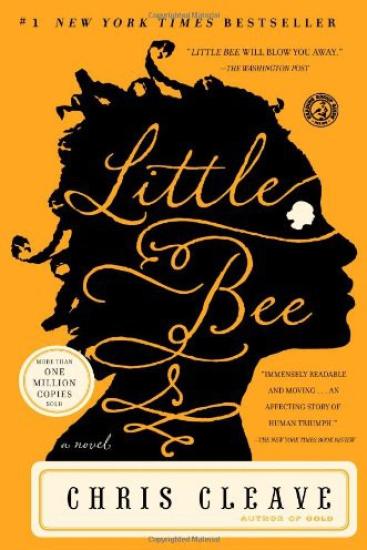
Rating: ****
Tags: Fiction, General, England, Young women, Literary, Psychological, Social Science, Contemporary Women, Humorous, Identity (Psychology), Emigration & Immigration, Nigerians, Emigration and Immigration, Refugees, Lang:en
Summary
We don't want to tell you too much about this book. It is a
truly special story and we don't want to spoil it.
Nevertheless, you need to know something, so we will just say
this: It is extremely funny, but the African beach scene is
horrific. The story starts there, but the book doesn't. And
it's what happens afterward that is most important. Once you
have read it, you'll want to tell everyone about it. When you
do, please don't tell them what happens either. The magic is in
how it unfolds.
Amazon Best of the Month, February 2009: The
publishers of Chris Cleave's new novel "don't want to spoil"
the story by revealing too much about it, and there's good
reason not to tell too much about the plot's pivot point. All
you should know going in to
Little Bee is that what happens on the beach is
brutal, and that it braids the fates of a 16-year-old Nigerian
orphan (who calls herself Little Bee) and a well-off British
couple--journalists trying to repair their strained marriage
with a free holiday--who should have stayed behind their
resort's walls. The tide of that event carries Little Bee back
to their world, which she claims she couldn't explain to the
girls from her village because they'd have no context for its
abundance and calm. But she shows us the infinite rifts in a
globalized world, where any distance can be crossed in a
day--with the right papers--and "no one likes each other, but
everyone likes U2." Where you have to give up the safety you'd
assumed as your birthright if you decide to save the girl
gazing at you through razor wire, left to the wolves of a
failing state. --
Mari Malcolm
Chris Cleave's
Little Bee works because the unflinching, brutal story
balances an outwardly political motive with rich, deep
character development (and even some welcome humor), focusing
narrowly on events before broadening to reveal some larger
truths. Cleave's firm grasp of human nature and his unsparing
disdain for injustice allow him to articulate lives as
different as those of Little Bee and the less-likeable Sarah;
both characters, though, are unforgettable. Comparisons between
Cleave and fellow Brits Ian McEwan and John Banville are apt.
The only dissent came from the
San Francisco Chronicle, which took issue with the
narrative voices and the rushed pace of the story. All others
agreed, however, that Cleave's sophomore effort is, as the
Chicago Sun-Times succinctly put it, "a loud shout of
talent."
Amazon.com Review
From Bookmarks Magazine
Copyright 2009 Bookmarks Publishing LLC